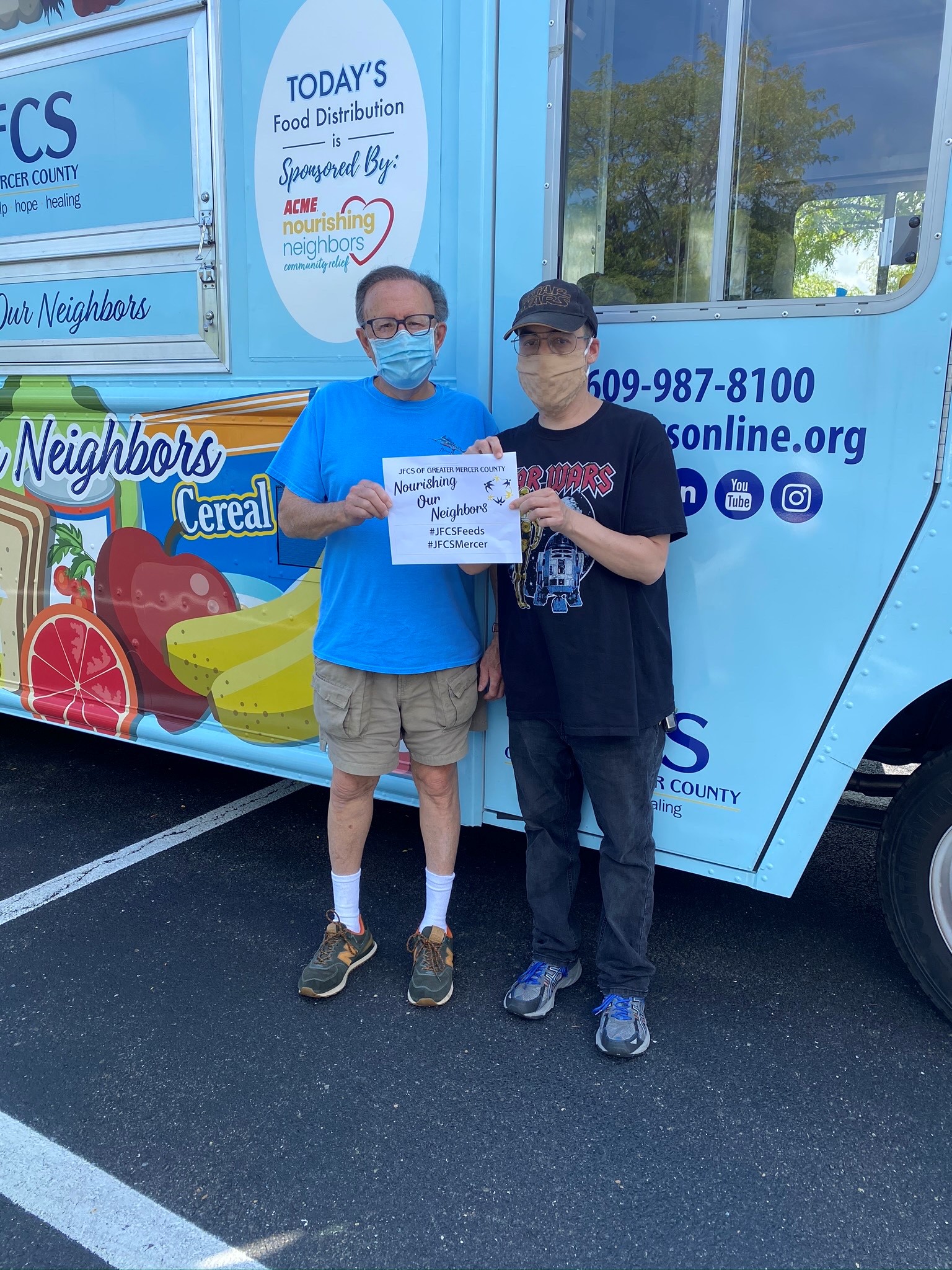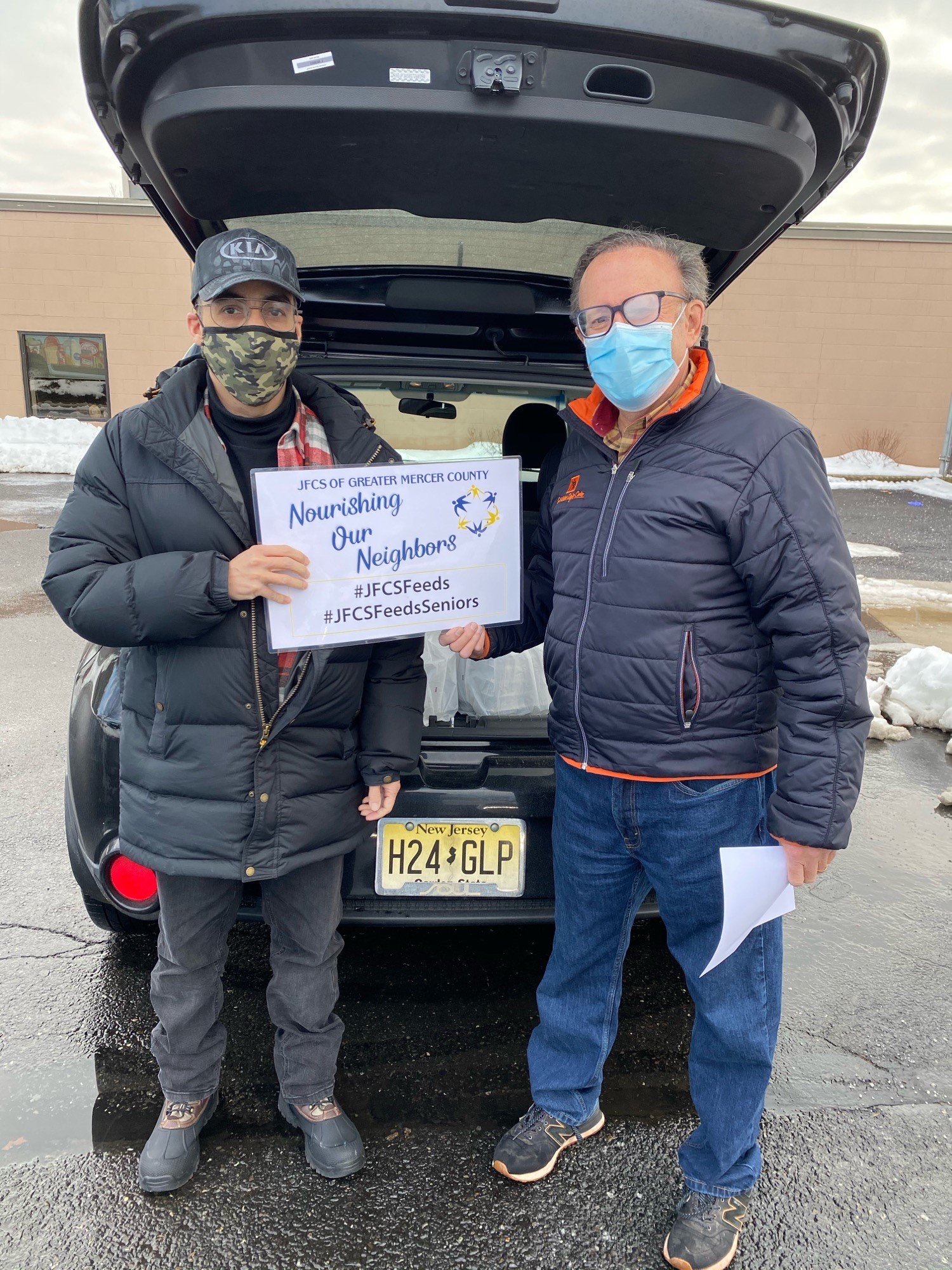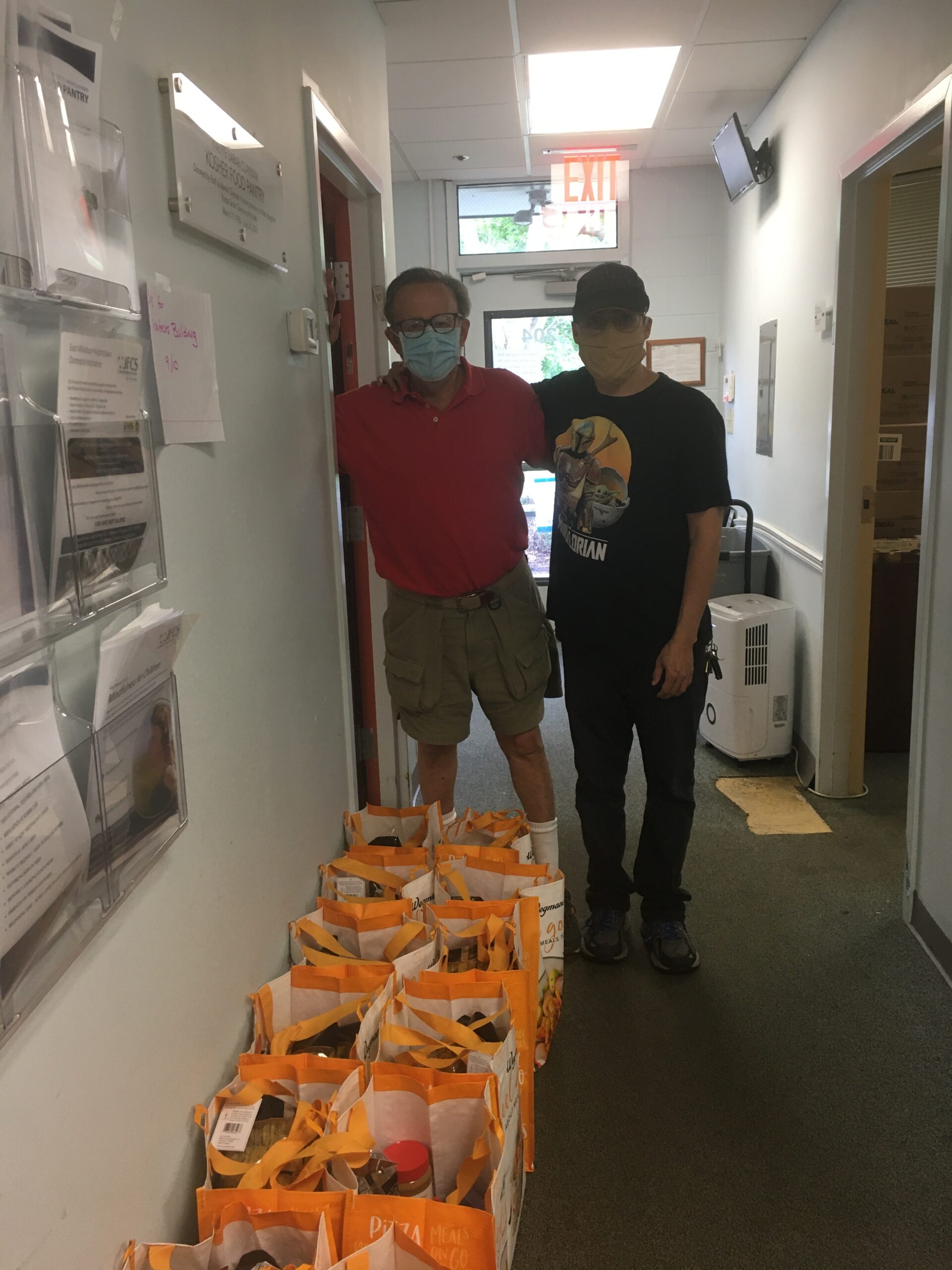Reducing Social Anxiety & Promoting Re-Engagement in Children (Pandemic Re-Entry)
 For many children, who may have struggled with feeling comfortable when interacting with others pre-pandemic, having had a year of significantly reduced social interactions may have felt like a relief. However, currently with schools, businesses, and public places re-opening many children are dealing with increased social difficulties as the pandemic eliminated any outside contact with others other than their immediate family members. The five tips below may help to support your child with increased reengagement skills and reduced social anxiety.
For many children, who may have struggled with feeling comfortable when interacting with others pre-pandemic, having had a year of significantly reduced social interactions may have felt like a relief. However, currently with schools, businesses, and public places re-opening many children are dealing with increased social difficulties as the pandemic eliminated any outside contact with others other than their immediate family members. The five tips below may help to support your child with increased reengagement skills and reduced social anxiety.
Talk openly about what social anxiety is with your child.
Explain to your child that children struggling with social anxiety may fear social situations that involve interacting with others (i.e. peers, teachers, adults) when in school, public or when attending gatherings. Children with social anxiety may experience negative thoughts and/or fears that others are judging or having negative beliefs about them. Talking to your child and normalizing their feelings of anxiety after being in quarantine, and expressing that their feelings are normal, is vital. To normalize their feelings, talk to your child about your own experiences with anxiety and how you overcame them.
Schedule time for your child to interact others.
Schedule time with friends and close family members via Facetime or Zoom – making sure to encourage your child’s use of the camera when on video calls to promote face-to-face interaction with others. (Should your child struggle with not feeling comfortable with using the camera, you may allow the use of audio only calls initially). However, efforts should be made to successfully achieve video face-to-face interaction with use of the camera feature, in order to work on strengthening social connections and reduce social anxiety.
Provide encouragement and support to your child
Provide encouragement and support to your child with attention on acceptance and sensitivity, making sure to avoid use of judgment, being critical, or showing frustration with your child. Help your child to identify, label, and express their emotions. Children will at times not be successful in achieving their socialization goals. It is difficult for children to face their fears, be sure to validate their feelings, talking to your child at their eye level and validating their emotions is critical for their successful reintegration with others. Utilize language such as, “I see this is hard for you, we can work on this together,” rather than “Why can’t you do it?” or “Why can you be like your sister/cousin they can interact with other kids?”
Encourage outdoor experiences and activities.
Encourage and support your child to increase his/her time engaging in outside experiences and activities. You may support your child by being available to visit a local park, leaving the house for some ice cream, playing a sport with your child on the driveway or front street, and/or visiting the grocery store will allow your child to have gradual exposures to being around others, while still practicing social distancing and wearing their mask.
Support your child with coping skills.
Support your child with the development and implementation of social anxiety coping skills. Skills that can help in reducing your child’s social anxiety include the following strategies: timed breathing skills such as, square breathing which involves creating a mental image of a square box, inhaling from your nose for a count of four, holding air in your lungs for a count of four, exhaling from your mouth for a count of four and holding your breathe for a count of four, (see a guided video here). The square breathing sequence can be repeated three times to receive the best results with reduced anxiety. Another skill to reduce anxiety is the use of a grounding skill using your five senses, where you can have your child locate and explore – 5 things they can see, 4 things they can touch, 3 things they can hear, 2 things they can smell and 1 thing they can taste. This exercise intercepts anxiety producing thoughts and helps your child to be present in their space. (see guided video here).
Arlene Munoz, LSW

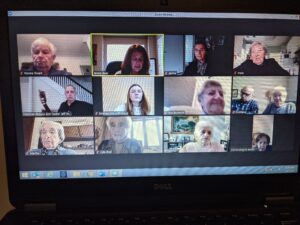 As an intern at JFCS, I have had the privilege of interacting with our senior clients during the coronavirus pandemic. Throughout a period of isolation, uncertainty, and fear, I have seen firsthand the resilience and positivity of older Americans. Whether I was assisting
As an intern at JFCS, I have had the privilege of interacting with our senior clients during the coronavirus pandemic. Throughout a period of isolation, uncertainty, and fear, I have seen firsthand the resilience and positivity of older Americans. Whether I was assisting  I first reached out to JFCS to volunteer in October. After seeing how people throughout our community have been stepping up and helping each other through this trying time, I wanted to try to do my part in whichever way possible.
I first reached out to JFCS to volunteer in October. After seeing how people throughout our community have been stepping up and helping each other through this trying time, I wanted to try to do my part in whichever way possible.  Why is it important to mark an anniversary?
Why is it important to mark an anniversary? There has certainly been much lost in the past year…
There has certainly been much lost in the past year… How do we look forward with hope?
How do we look forward with hope?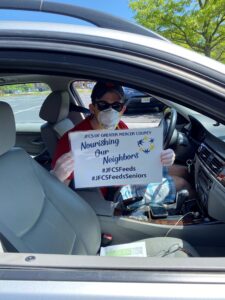

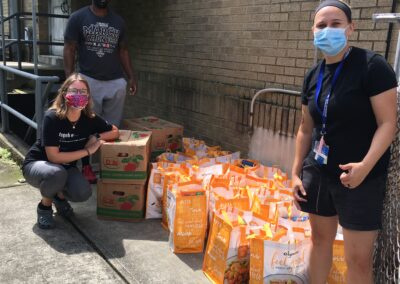
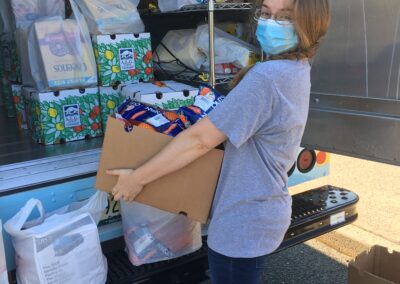
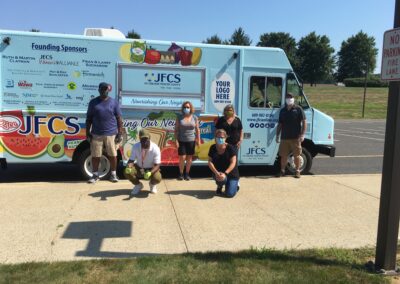
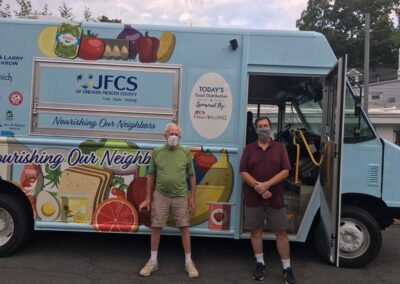

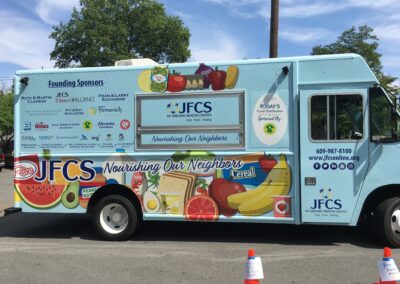
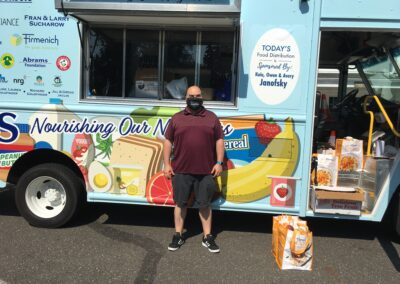

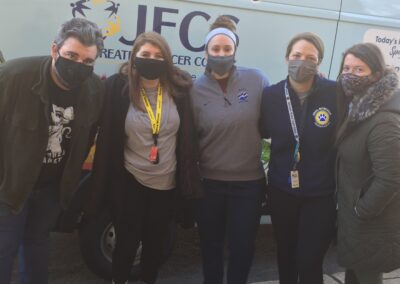
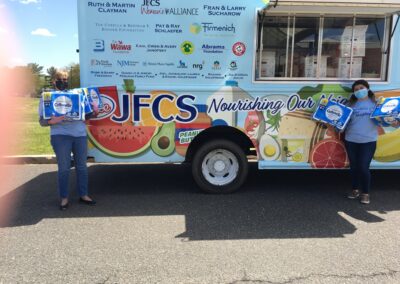
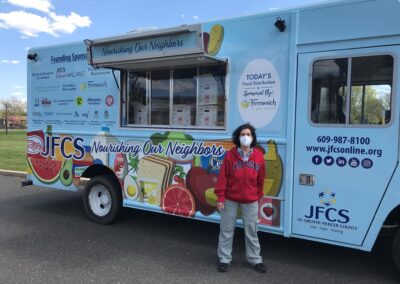


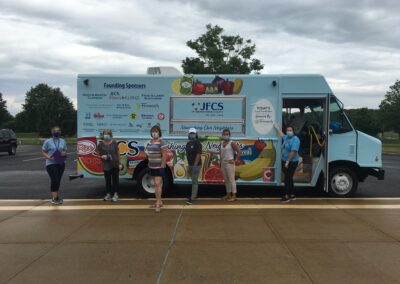


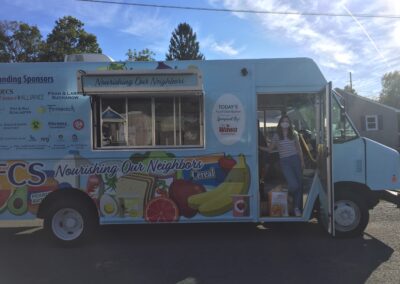
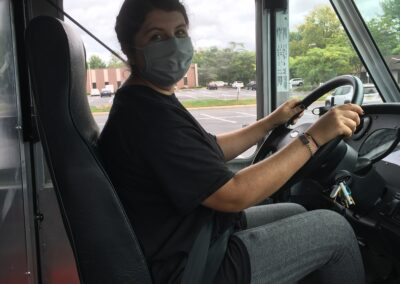
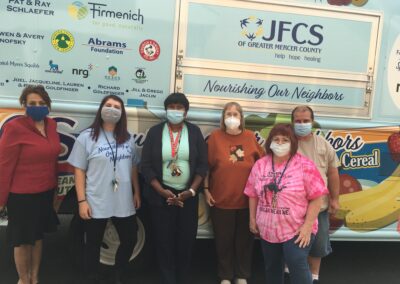
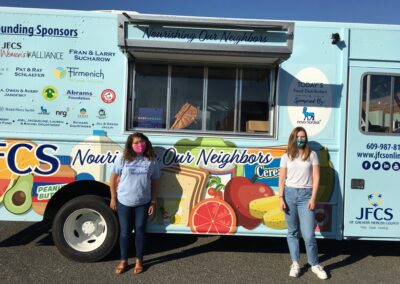




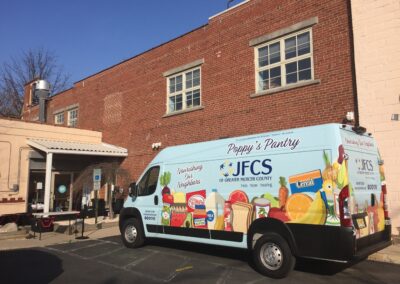
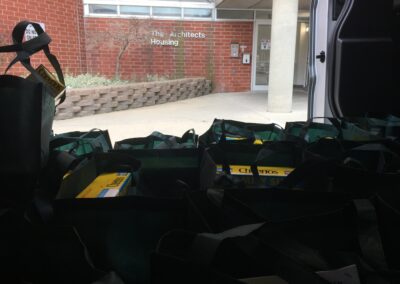

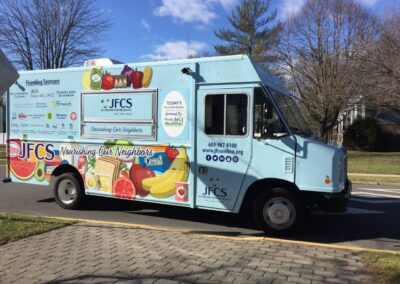

 “The second vehicle allows us to reach even further into the community by accommodating distributions of all sizes and giving us more flexibility when picking up donations from local food drives or other supplies,” said Napell.
“The second vehicle allows us to reach even further into the community by accommodating distributions of all sizes and giving us more flexibility when picking up donations from local food drives or other supplies,” said Napell. Healing, one of our agency’s three core values, is derived from the Jewish value Tikkun Olam.
Healing, one of our agency’s three core values, is derived from the Jewish value Tikkun Olam. My son, Ben, and I form the perfect “dynamic duo” as we travel about Mercer County delivering meals to a wide assortment of JFCS clients. He drives and I navigate (with help from Waze). We have both been blessed in many ways and are happy to do our little bit to help the elderly and others who, even without a pandemic, find it hard to get out and about. We truly believe that though we cannot save the world, we can help save a little piece of it here in New Jersey. Plus, everyone at JFCS is extraordinarily cheerful and dedicated which makes the volunteer experience something we look forward to each week.
My son, Ben, and I form the perfect “dynamic duo” as we travel about Mercer County delivering meals to a wide assortment of JFCS clients. He drives and I navigate (with help from Waze). We have both been blessed in many ways and are happy to do our little bit to help the elderly and others who, even without a pandemic, find it hard to get out and about. We truly believe that though we cannot save the world, we can help save a little piece of it here in New Jersey. Plus, everyone at JFCS is extraordinarily cheerful and dedicated which makes the volunteer experience something we look forward to each week.